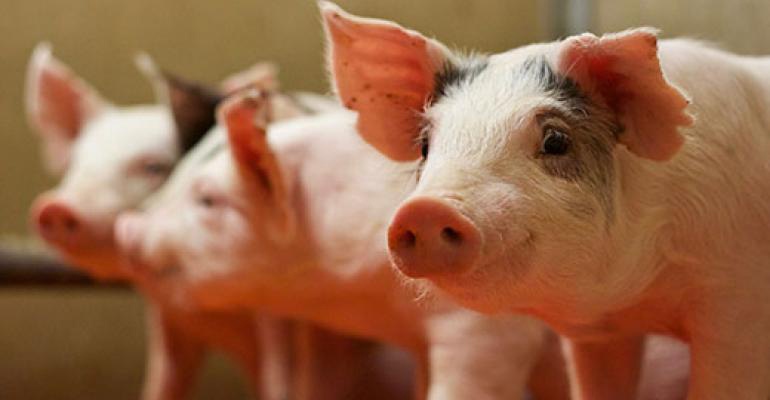SADS-CoV identified in same region and from same bats as SARS coronavirus.

A newly identified coronavirus that killed nearly 25,000 piglets in 2016-17 in China emerged from horseshoe bats near the origin of the severe acute respiratory syndrome coronavirus (SARS-CoV), which emerged in 2002 in the same bat species, according to the National Institutes of Health (NIH).
The new virus is named swine acute diarrhea syndrome coronavirus (SADS-CoV). It does not appear to infect people, unlike SARS-CoV which infected more than 8,000 people and killed 774, NIH said April 4, noting that no SARS-CoV cases have been identified since 2004.
According to NIH, study investigators identified SADS-CoV on four pig farms in China’s Guangdong province. The work was a collaboration among scientists from EcoHealth Alliance, Duke-NUS Medical School, Wuhan Institute of Virology and other organizations and was funded by the National Institute of Allergy & Infectious Diseases, which is part of NIH. The research was published in the journal Nature.
The researchers said the finding is an important reminder that identifying new viruses in animals and quickly determining their potential to infect people is a key way to reduce global health threats.
SADS-CoV began killing piglets on a farm near Foshan in Guangdong in late October 2016. Investigators initially suspected porcine epidemic diarrhea virus (PEDV) as the cause. PEDV is a type of coronavirus common to swine that had been identified at the Foshan farm, NIH said. Detection of PEDV ceased by mid-January 2017, yet piglets continued to die, suggesting a different cause. Scientists said separating sick sows and piglets from the rest of the herd helped stop the outbreak of SADS-CoV by May 2017.
Investigators confirmed the connection of SADS-CoV to bats by identifying the new virus in the small intestines of piglets that were part of the outbreak. They then determined that the genetic sequence of SADS-CoV is similar to that of a bat coronavirus discovered in 2007 and looked for evidence of SADS-CoV in bat specimens collected from 2013 to 2016 in Guangdong. The new virus appeared in 71 of 596 specimens (11.9%).
The researchers also tested 35 farm workers who had close contact with sick pigs, none of whom tested positive for SADS-CoV.
Currently, six coronaviruses are known to cause disease in people, but only two of them — SARS-CoV and Middle East Respiratory Syndrome coronavirus — have been known to cause large outbreaks of fatal illness in people.
So far, there have not been any indications that SADS-CoV has spread outside of China's Guangdong province.
About the Author(s)
You May Also Like


.png?width=300&auto=webp&quality=80&disable=upscale)
